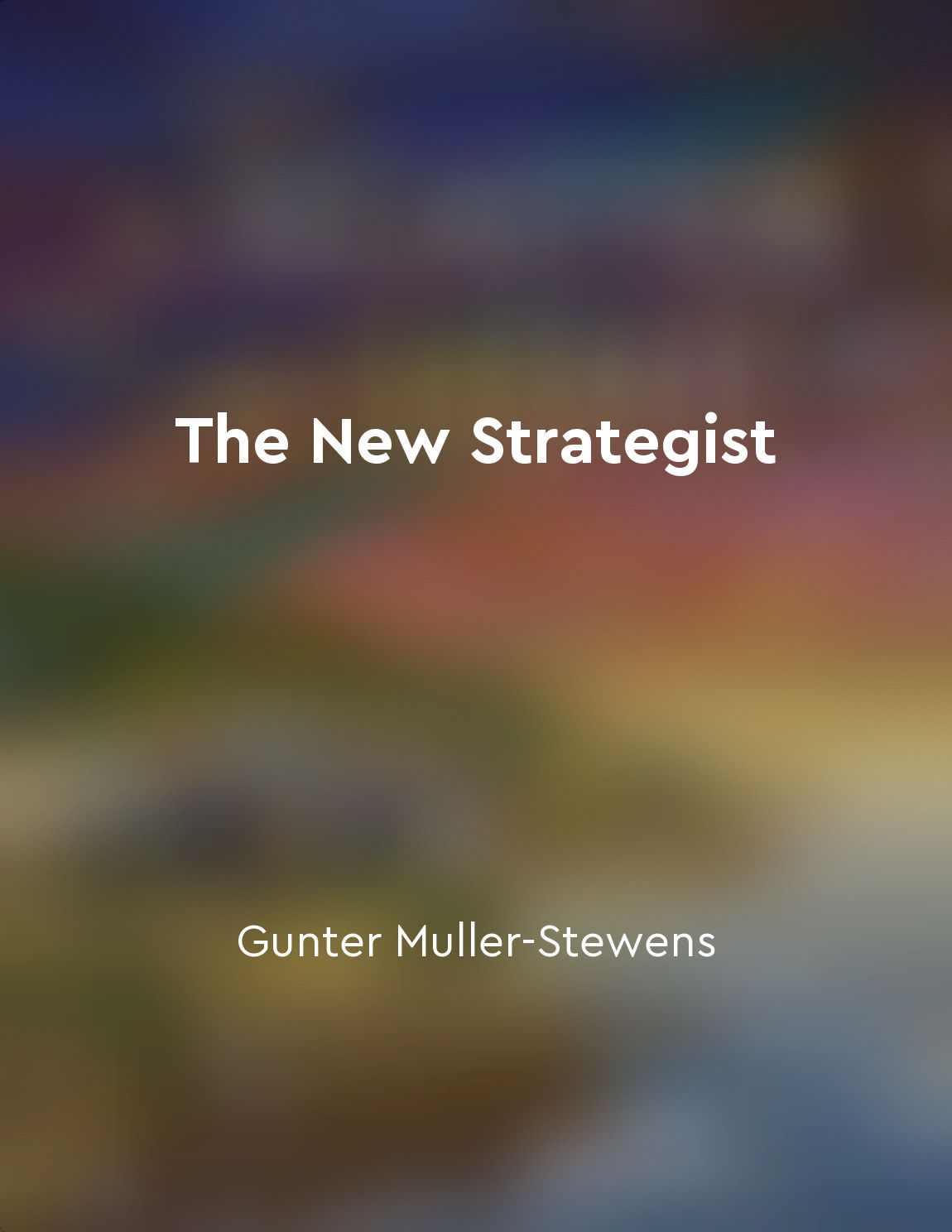Establish a culture of continuous improvement to address ongoing needs from "summary" of Fix This Next by Mike Michalowicz
To truly address ongoing needs within a business, it is essential to establish a culture of continuous improvement. This means creating an environment where the focus is always on getting better, on finding ways to enhance processes, products, and services. It requires a mindset shift, a commitment to never settling for the status quo but instead always striving for improvement. Continuous improvement is not a one-time project or initiative; it is an ingrained part of the company's DNA. It is about constantly seeking out ways to do things better, faster, more efficiently. This mindset should be embraced at all levels of the organization, from leadership to front-line employees. Everyone should be encouraged to identify areas for improvement and to work together to implement solutions. By fostering a culture of continuous improvement, a business can stay ahead of the curve and adapt to changing circumstances. This proactive approach allows the company to address issues before they become major problems, to innovate and stay competitive in the marketplace. It also creates a sense of ownership and accountability among employees, as they are empowered to contribute to the success of the business. To truly establish a culture of continuous improvement, it is important to provide the necessary support and resources. This may include training programs, tools for measurement and feedback, and recognition for those who contribute to improvement efforts. It is also crucial to create a safe space for experimentation and failure, as not every idea will be successful, but each one brings the business closer to its goals.- Continuous improvement is not a one-time fix but an ongoing process that requires dedication and commitment. By establishing a culture of continuous improvement, a business can address its ongoing needs and position itself for long-term success in a rapidly changing world.
Similar Posts

Competitive analysis helps identify opportunities and threats
Competitive analysis is a crucial tool for strategic planning in the business world. By examining the strengths and weaknesses ...
Strive for simplicity in processes
The key principle of Lean thinking is to strive for simplicity in processes. This means eliminating unnecessary complexity and ...

Build a strong network of partners and collaborators
To achieve rapid growth and long-term success, it is crucial for businesses to establish strong relationships with partners and...
Learning from failure is crucial
Failure is an inevitable part of the journey towards innovation. It is not a matter of if you will fail, but rather when and ho...
Understand the changing world order
Understanding the changing world order is essential for navigating the complexities of today's global landscape. It involves re...
Seek out diverse perspectives and opinions
When facing a challenge or making a decision, it is essential to gather a wide range of perspectives and opinions. This means a...
Start with the classics
The classics in business literature are considered classic for a reason – they have stood the test of time, offering timeless w...
Stay committed to personal and professional growth
The key to becoming highly effective in both personal and professional life lies in the unwavering commitment to continuous gro...
Seek financial education beyond traditional schooling
To truly become financially successful, one must go beyond what is taught in traditional schools. While traditional schooling p...
Put first things first
The key principle of putting first things first is about organizing and executing around your most important priorities. It inv...

